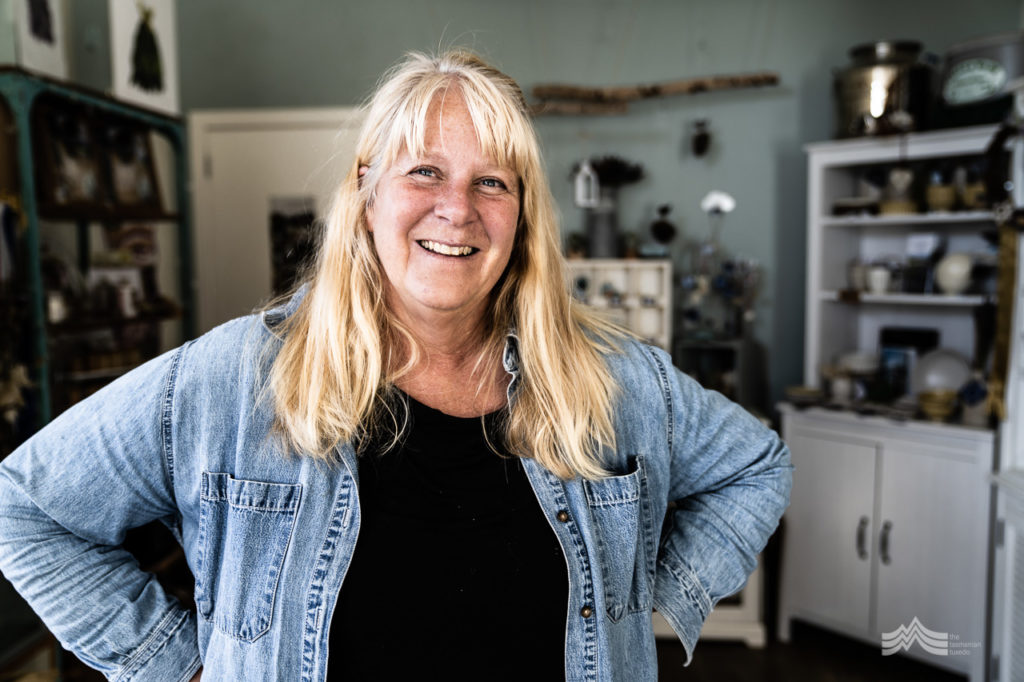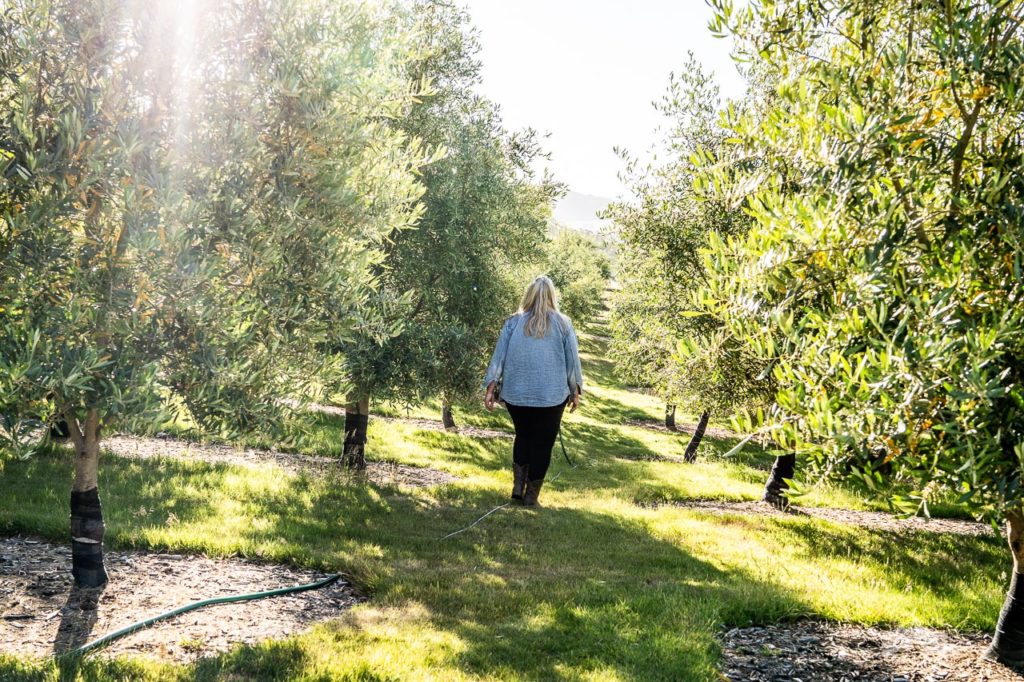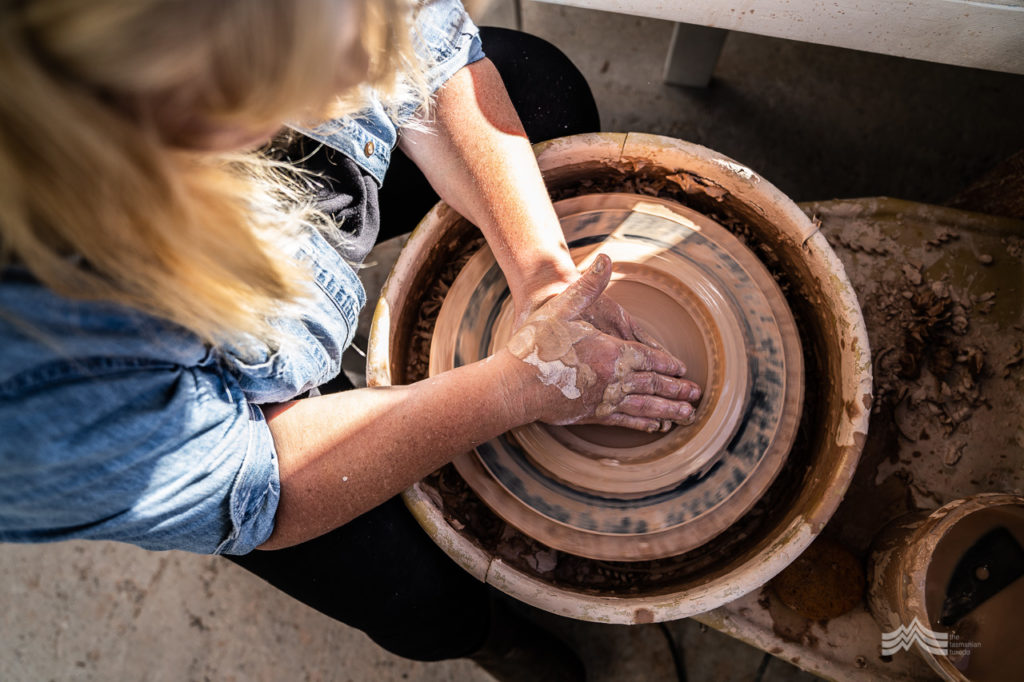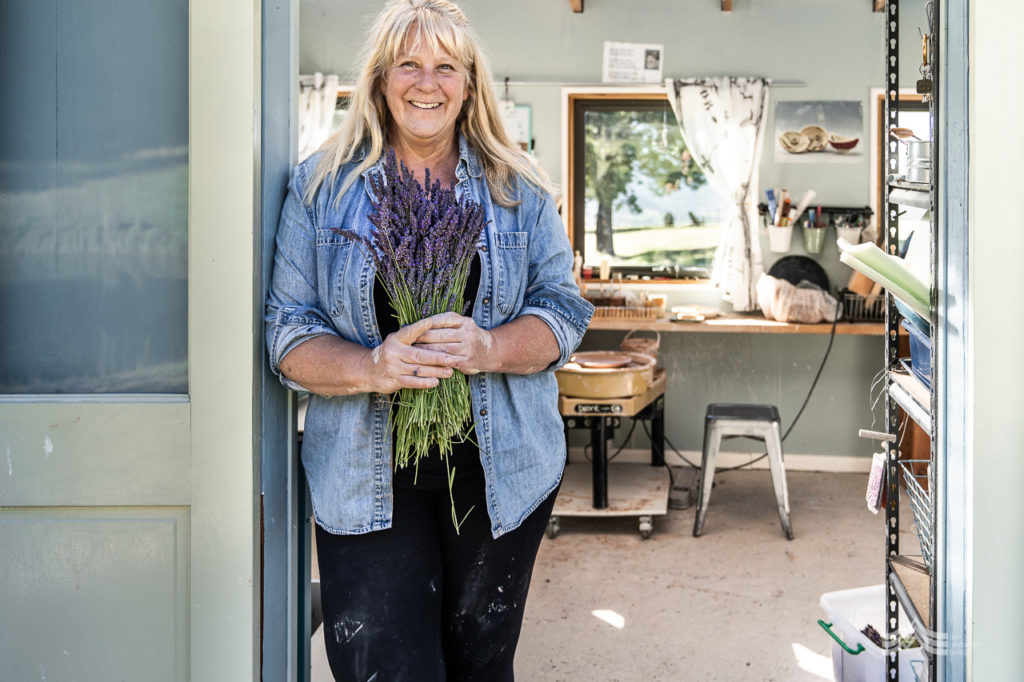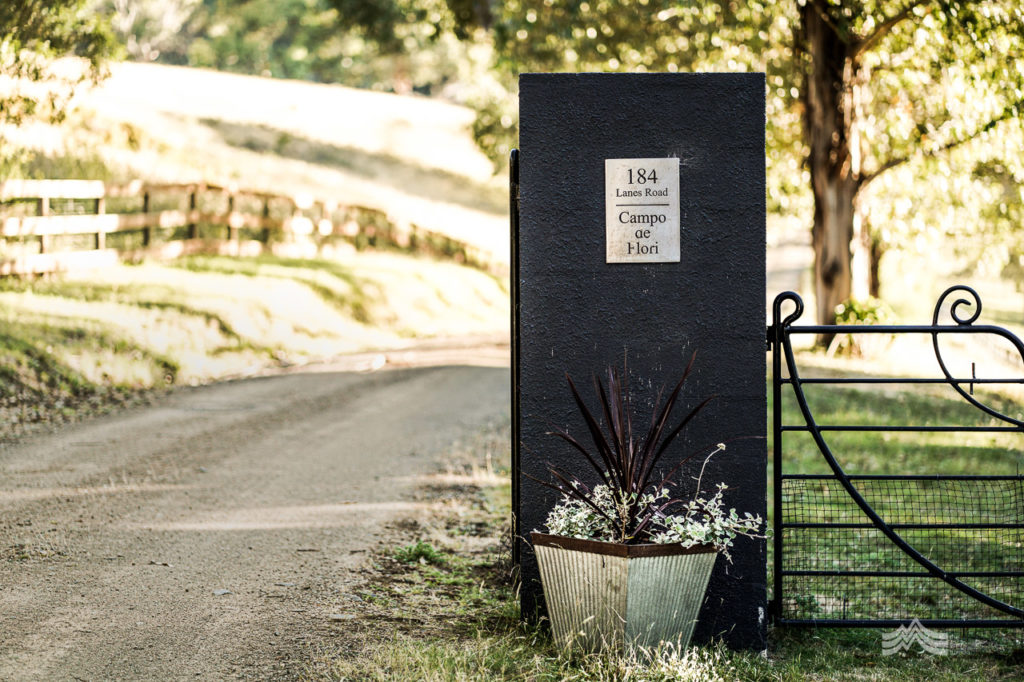High in the hills of the Huon, away from the well-beaten tourist path, sits a glorious oasis.
Welcome to Campo de Flori
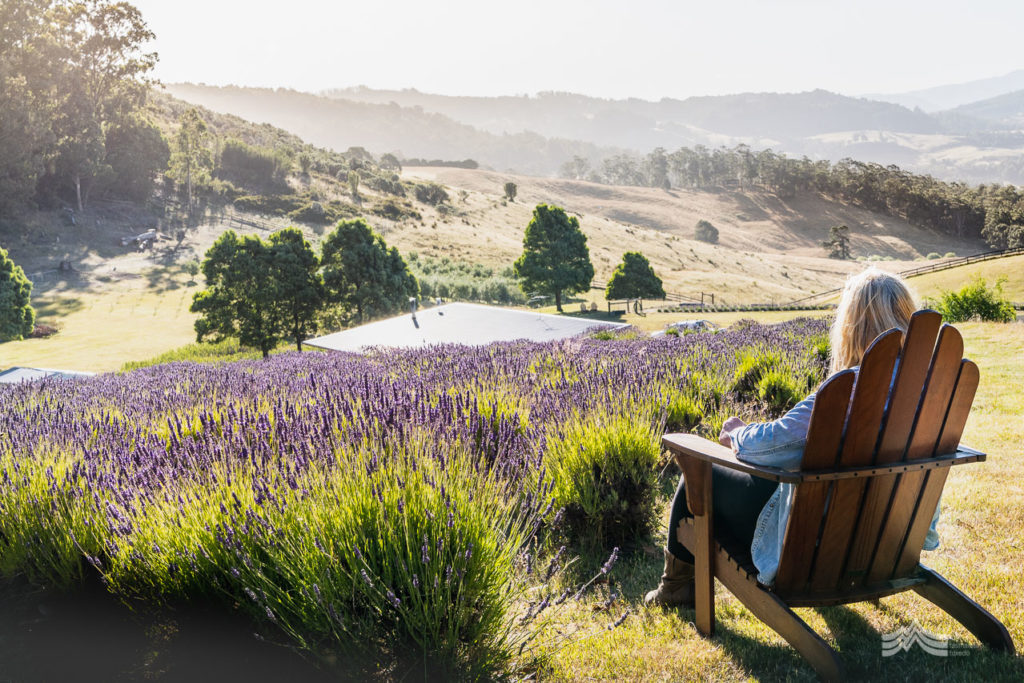
The trip along the steep and winding gravel road is well worth it. Dry sclerophyll forest gives way to a picture perfect farm. Beautiful green pastures unfurl themselves like a rich carpet lain gently across undulating hillsides. It’s a quintessential marsupial lawn that draws all manner of local visitors in from the surrounding forest once dusk prevails. The scene is nothing short of breathtaking.
Catching the eye in the foreground is a vibrant display of lavender. Purple sprigs dance a friendly welcome, releasing a musky fragrance that floats easily away on the spring breeze. An olive grove, a saffron field, and an art studio complete the serene but intriguing picture. It’s Lisa Britzman and David Peck’s own hand carved slice of heaven.
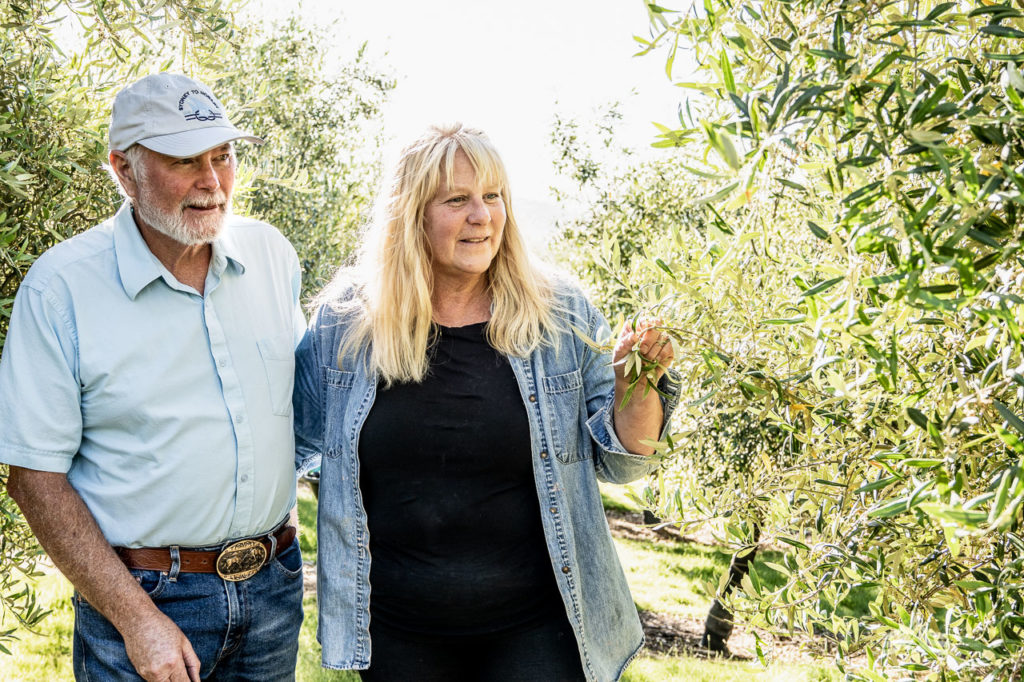
Lisa grew up spending all her free time on her grandparents farm in Iowa. There in the Midwest of the USA, a region famed for its sprawling cornfields, she gently cultivated a love of adventure. “My grandfather farmed corn, soybeans and cattle and I clearly remember being out on the farm beside him,” reflects Lisa. “My grandmother on the other hand was a painter and poet.”
The generations are forever tied by this eclectic combination of skills and interests. They clearly run deep through Lisa’s blood – she’s a talented artist, farmer and entrepreneur in her own right. Added to her creative gene pool is the fact that both of Lisa’s parents were musicians.
“My love affair with ceramics started in high school,” smiles Lisa. “It was always something I enjoyed and when I went to university I was really inspired by innovative ceramicist Dean Schwarz, he was a big part of my life. Dean had trained with the Master Potter Marguerite Wildenhain and was her assistant at the legendary Pond Farm School in California. Marguerite was one of the first female potters to train in the distinctive German Bauhaus style, and was the first woman in Germany to earn the title of Master Potter.”
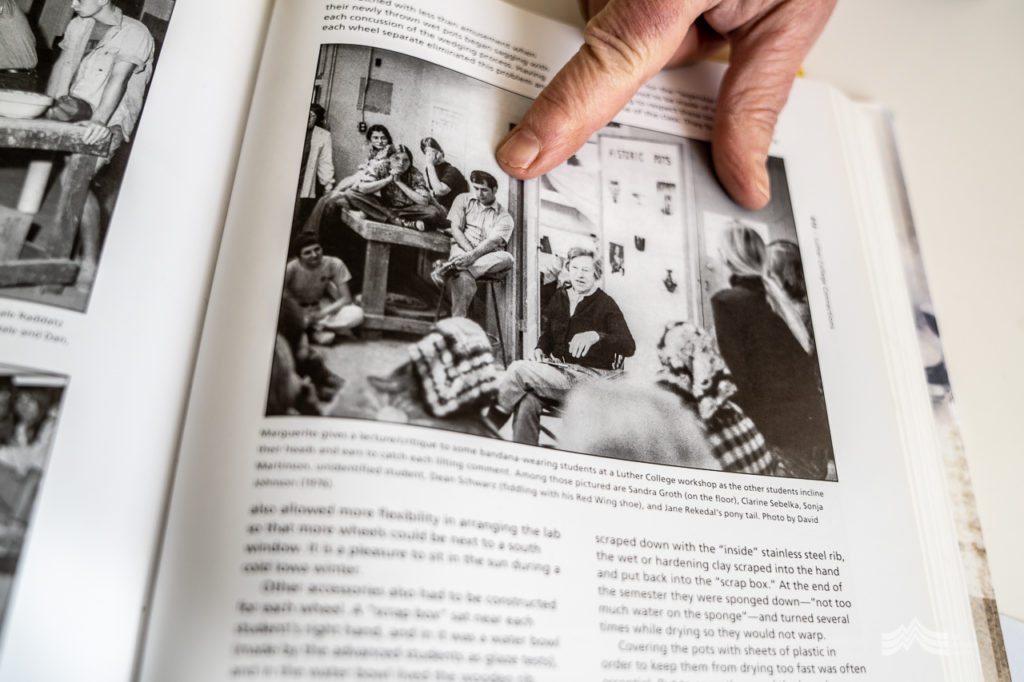
A heavy influence of Bauhaus is evident in Lisa’s own glorious pieces. “Training in Bauhaus was all about perfection,” nods Lisa. “We were taught to throw amazingly well and really concentrated on getting the form right. It’s all about attention to detail. Only once you get that right can you move on to design…form follows function.”
Lisa’s early professional life saw her working as a potter in a factory. “We turned out a lot of personalised bowls and dishes. Whilst it could be likened to a ceramic sweat-shop, it was an experience that served to provide me with extremely solid skills. However, it wasn’t too long before I went searching for an opportunity to be more creative.”
In addition to ceramics, Lisa’s studied a fascinating combination of art, geology, environmental science and architecture – all of which are echoed in her work in their own unique way. “I studied with one of the fathers of Raku, a Japanese form of ceramics, and quickly came to love the freedom it offered. It’s an art form that continues to permeate my work today,” she says.
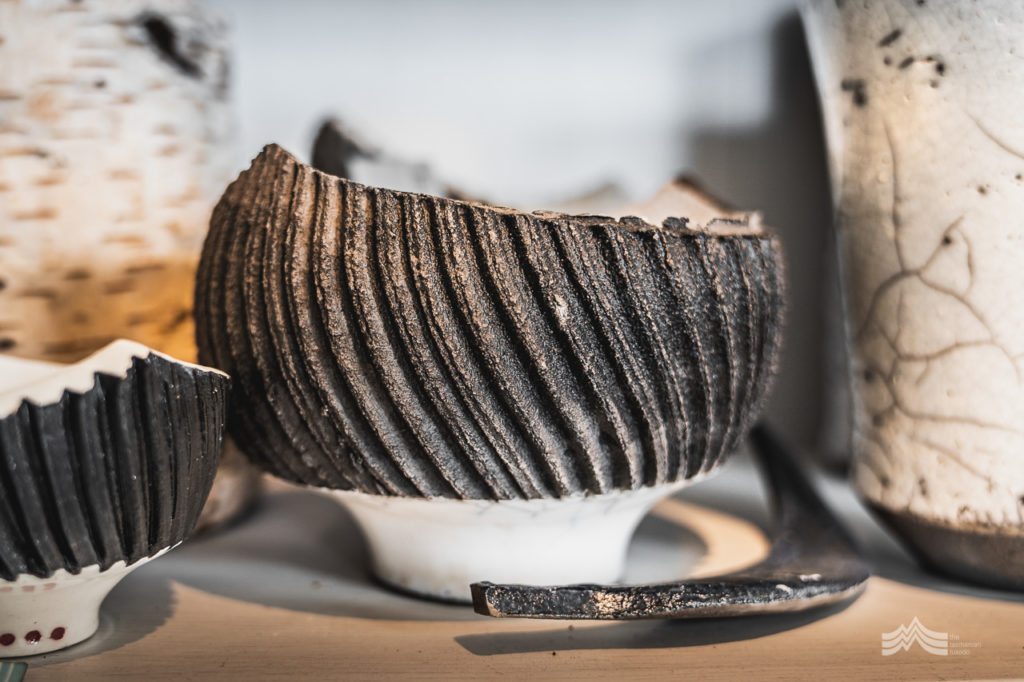
With a day job in geology, and later in environmental assessments, and spare time spent exhibiting, Lisa carved a rich life for herself in the United States. Adventure called however, when partner David – a civil engineer with saltwater in his veins – bought a yacht with a view to sail the world.
“The plan was to circumnavigate the globe,” starts Lisa. “A few months in we were really enjoying life in the South Pacific and started looking at where we could settle for a little while longer. New Zealand laws required our cat to be quarantined for six months, and Australia’s meant only two. So Australia it was.”
“When 9/11 unfolded we really felt uneasy about continuing the sailing adventure. We even questioned flying the American flag on the boat…things were that worrying. We were very hesitant to sail when there was a threat that war may erupt.” Lisa continued, “So we lived in a marina in Queensland for a while and eventually found sponsors so we could work. That was a tough period – it took me a whole six months to find a job. Thankfully David’s engineering skills were in demand and he found himself employed within six hours of looking!”
Initially lured to Tasmania by the Sydney to Hobart yacht race, Lisa and David found themselves enjoying multiple holidays exploring the island state. “We spent four years visiting Tassie before buying here,” nods Lisa. “We kept coming down from Brisbane…we loved the climate, the land, the people and the slower pace here. We were hooked. It was a long hunt to find just the right property to build our dream, but so worth it.”
“When we first arrived here there was just a single slashed track and no infrastructure, but we could see the potential,” describes Lisa. “I turned to David and said, ‘You’re an engineer, we can make it work,’ and the rest, as they say, is history.”
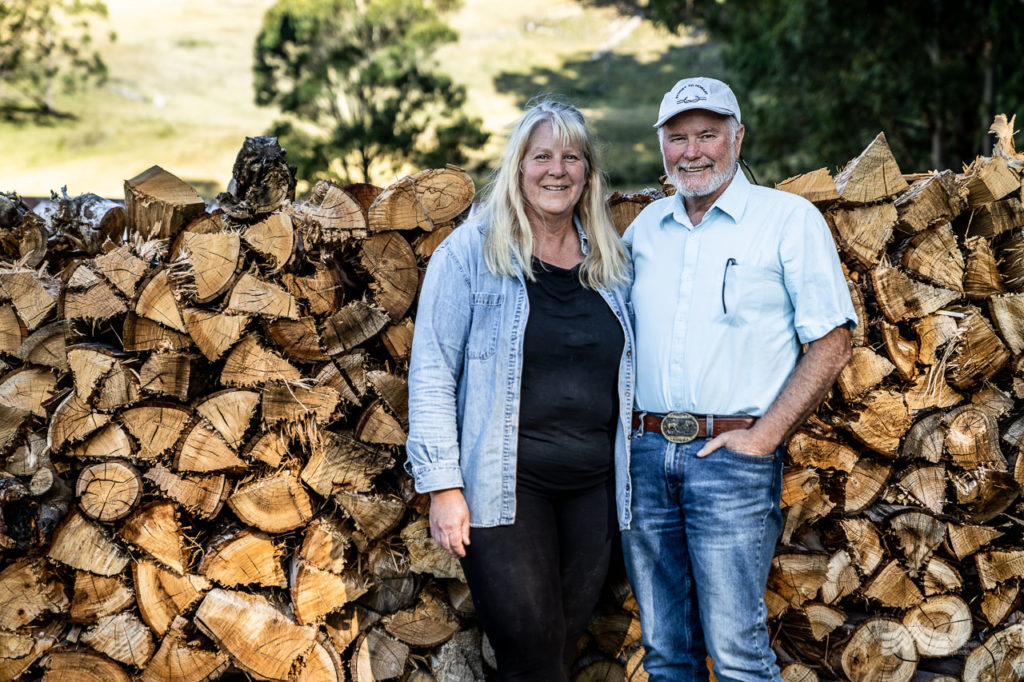
Campo de Flori slowly emerged from 52 acres high in Tasmania’s Huon Valley. A total of 12 acres are now cleared to support the farm while the other 40 remain native bushland. “As soon as we had the land, my farming instincts really kicked in,” laughs Lisa. “I knew we just had to plant something.”
Diversity and sustainability have become hallmarks of Campo de Flori’s evolution. “We started with saffron,” says Lisa. “That was planted while we were living on site in a tent. Our first crop was 4.5g and the next year it increased to about 200g. Saffron is a significant investment in terms of time as it takes six or seven years to recoup your money. We can currently produce around 500-600g each year of our award-winning saffron, but in recent times the market has collapsed and boutique growers like us have been left to struggle.”
Multiple varieties of culinary lavender and nine varieties of olives are now also thriving on the slopes overlooking the valley. “I learnt from my grandfather to be diverse,” explains Lisa. “As a boutique producer, almost every year something doesn’t work how you intended it. Farmers of all descriptions find themselves at the mercy of the weather…it’s never a good idea to have all your eggs in one basket.”
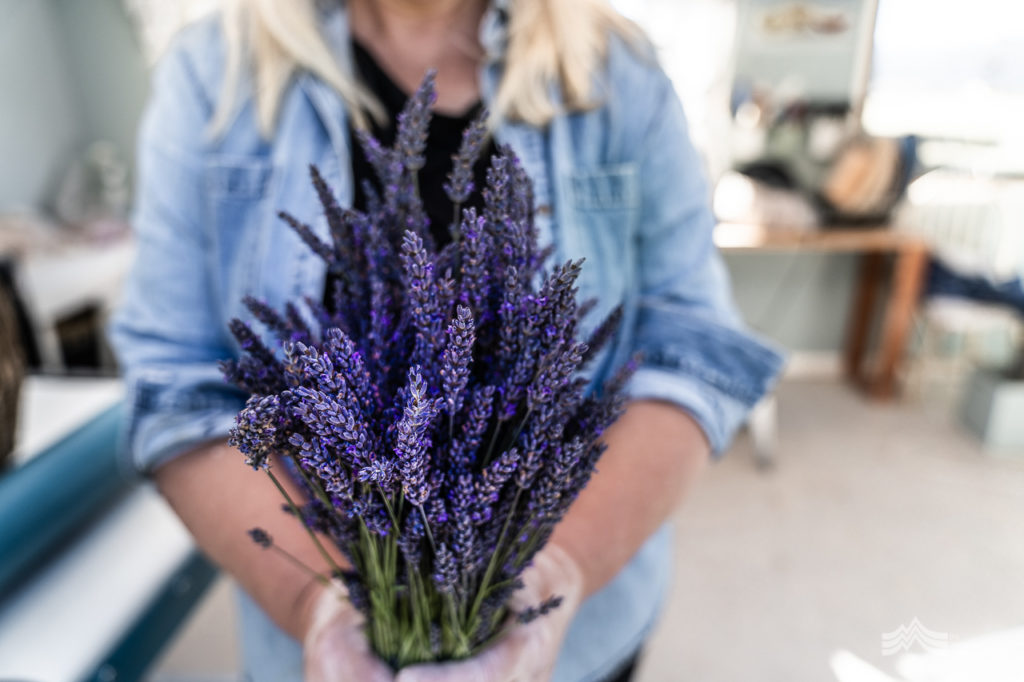
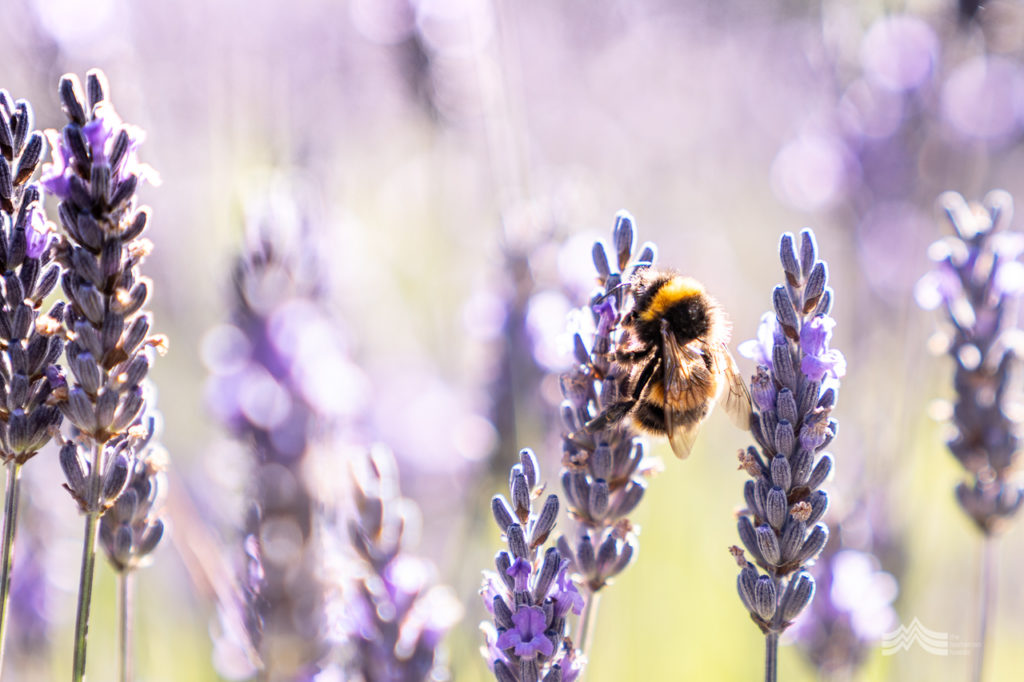
Sipping on home brewed lavender tea provides opportunity to stop and take in exactly what’s been created here at Campo de Flori – it’s a unique experience tucked away in the most beautiful of locations. A diverse organic farm and the only one in Tasmania offering lavender, olives and saffron with a cellar door for tasting and a ceramics studio on site. It’s something that makes the true paddock to ‘made right here’ plate experience come alive.
The ceramics studio is nestled beside the dam and offers views to die for across the valley towards the sleepy township of Glen Huon. “Sometimes on winter mornings, the water I have in here for the pottery wheel can be frozen over,” laughs Lisa. But generally this space is quite magical. It’s full of light and so very peaceful. In summer I can open the windows and doors to let the breeze flow right through to cool things down naturally.”
Lisa’s functional tableware now graces boutique restaurants and cafes across Tasmania. Mid-century vibes and country style somehow merge effortlessly into pieces designed to last for lifetimes. “I often wake up in the morning and pinch myself,” says Lisa when asked what every day life’s like on the farm. We have spectacular sunsets and sunrises and the freshest air in the world. It’s such a special place and I love sharing it with people. If someone had told me 30 years ago I’d be sitting here now I would have never believed them.”
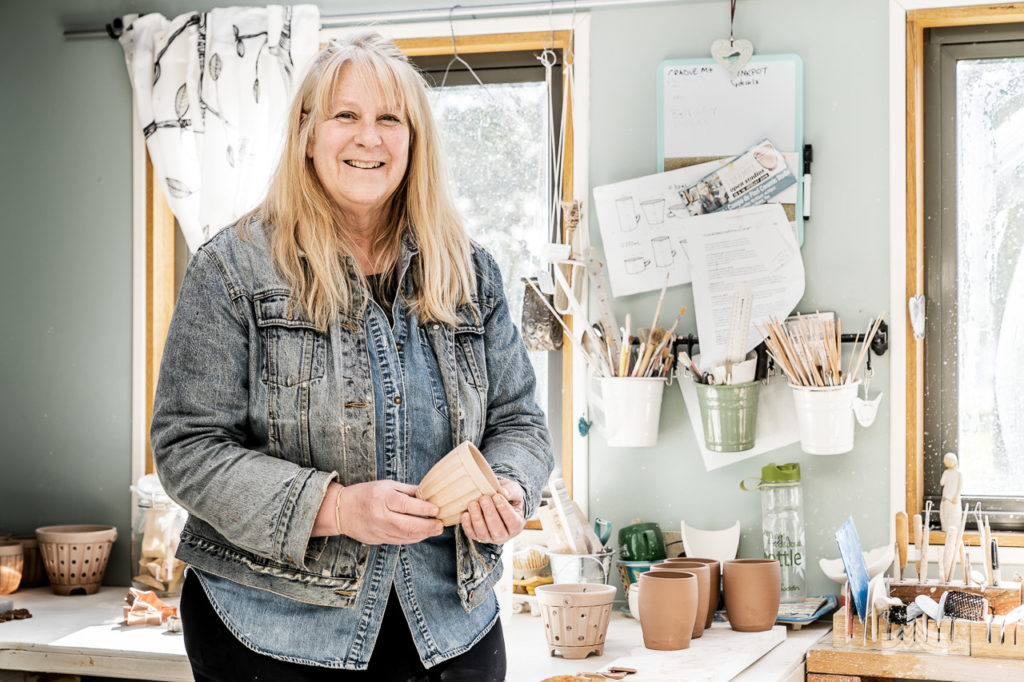
Things haven’t always been easy though. Lisa reflects, “Our sailing journey definitely taught me resilience. I had to learn to let go of fear and enjoy the ride, and that’s pretty much what’s happened here too. There’s been a lot of challenges along the way, but you just have to work through and find a way to arrive at a solution.”
“At the core of what we do sits a real commitment to organic farming and sustainability. It’s a philosophy that has guided us the entire way. We’re able to run this whole farm on the electricity typically used to run a single-person household…and we’re pretty proud of that. The next goal is to become carbon neutral.” Lisa adds, “We’re constantly monitoring the organics of the soil here and we’re lucky the rainfall is plentiful. I think the proof is in the pudding with our produce. The premium food and beverage awards we’ve received are wonderful and have certainly helped put us on the map with gourmet chefs, but the real satisfaction is simply in the quality and flavours we can produce. I think you can really taste the difference.”
That you can. Saffron that holds champion spice accolades, lavender that was celebrated in the Delicious Produce Awards and premium olive oil that is always a cellar door sell-out. “We also hand craft other products here on the farm with our lavender too,” explains Lisa. “Sleep pillows, candles, bath products and sachets are all popular.”
Unique curated workshops where visitors can create something of their own to take home have begun to resonate with locals and visitors alike. “It’s another way we’ve diversified,” Lisa describes. “I found when I was exhibiting our wares at markets that people often asked if they could come and visit the farm. In addition to tours, the workshops have proven to be very popular. I’ve offered a variety of different things from book binding to making tableware to Christmas wreaths. Sometimes they’re in collaboration with other local producers too.”
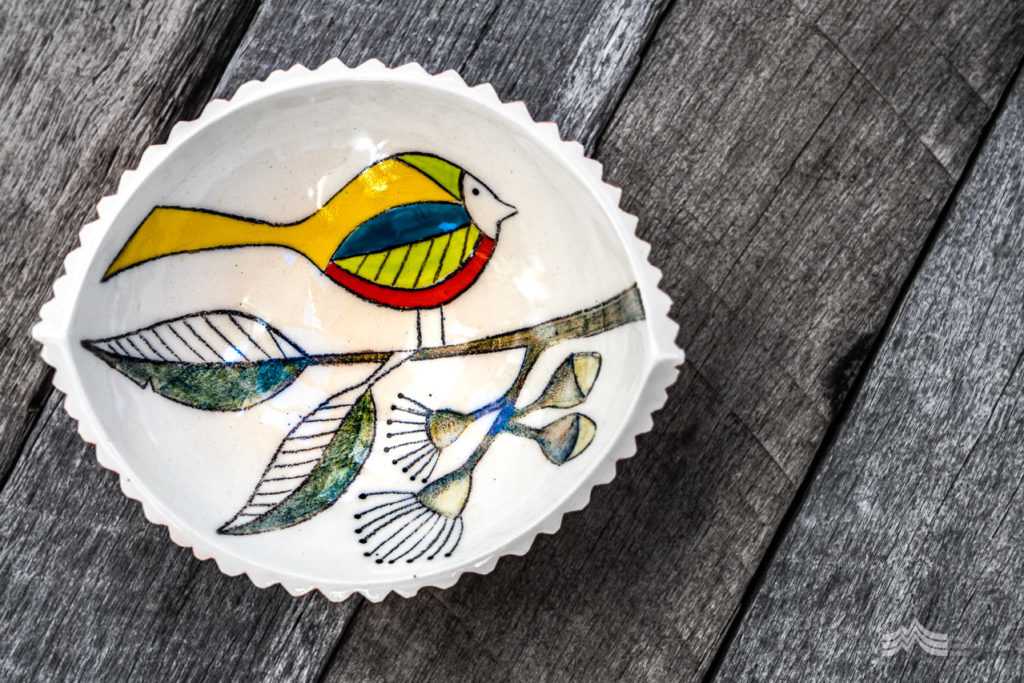
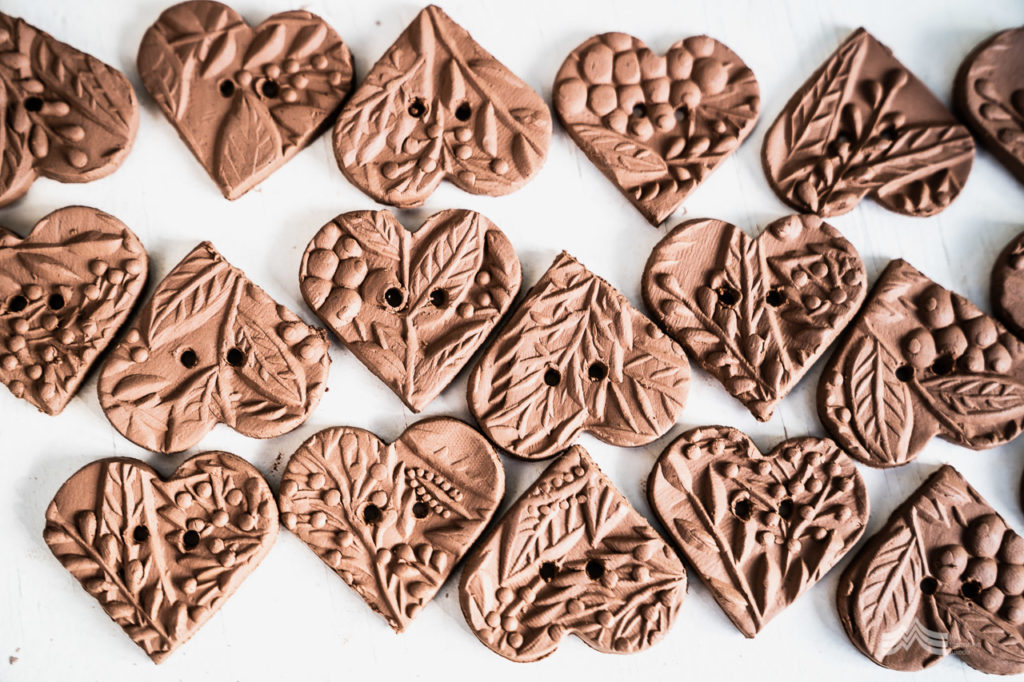
A visit to Campo de Flori is an event in itself. “Experiencing gourmet food and boutique art together is unforgettable,” says Lisa. “We offer seasonal tours of our lavender fields and olive orchards, farm gate sales of our premium extra virgin olive oil, and my ceramics – Raku pieces, tableware and ornaments – are also available for purchase too. It’s rewarding to see visitors learn about what we do here and seeing them pause and appreciate the beauty of the place.”
“One reason I really wanted to open up to visitors was to give others the chance to enjoy what we have here. I’ve found a lot of tourists are blown away not just by the produce, but by the space and the serenity of the farm itself. If they can truly take that in then they might also become advocates for sustainability too. What we have here in Tasmania is so special and we need to protect places like this. We’re trying to tread lightly on our slice of paradise and share its rich bounty with others as much as we can.”
Fickle global markets, life threatening bushfires and global pandemics all rate highly on Lisa and David’s list of recent challenges. “The last couple of years have certainly thrown up some unprecented situations,” agrees Lisa. “We were the last ones on this hillside to stay and defend when the bushfires were approaching. We were well prepared, but to have roaring flames on your doorstep and smoke so thick all around you that you can hardly see or breathe was certainly terrifying.”
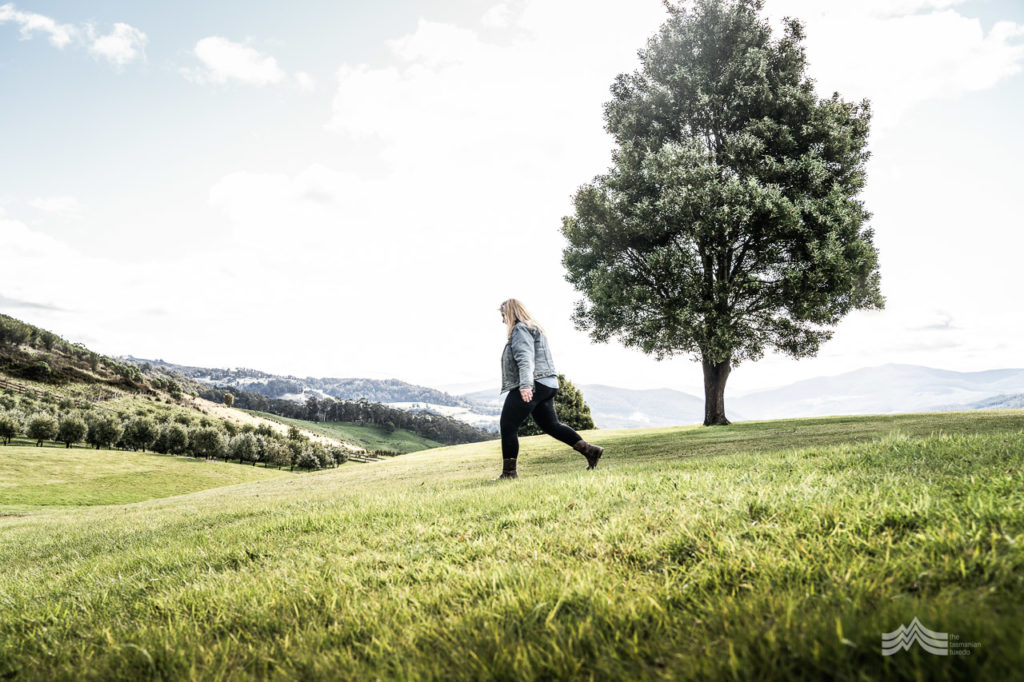
If you close your eyes, your senses will tune into to the sounds of the wind rustling the treetops in the surrounding forest. The birds calling as they dart across the dam. The frogs audible from their hide within the bullrushes. It’s called ‘Campo de Flori’ for a reason. “In Italian it means ‘field of flowers’” explains Lisa. “We love the name…it seemed a perfect reflection of what we are rewarded with here when everything is in bloom. What a place to call home.”
“For me, I really feel like I’ve come back to my roots now,” smiles Lisa. I started my life farming and in ceramics and things have come full circle. This is a healing place and I feel like I’m meant to be here.” She pauses before adding, “Even though I’ve come from the other side of the world, this is home. It’s where we were able to create the life that we wanted. A beautiful field of dreams.”
Find out more about Campo de Flori via their website, Facebook, and Instagram.
